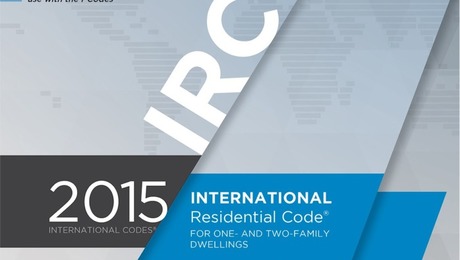GHBA members and staff are currently working with several City of Houston departments and committees that have an impact on our industry. GHBA applauds improvements in policy and relations between the City of Houston and the building industry.
Members are experiencing the impact of this work, from relieving unnecessary routing of permits through additional reviews, to bringing a key City of Houston code enforcement player to the GHBA building to explain the 2015 IRC code changes, and actively speaking up during the Livable Places Action Committee to educate participants on the impact of proposed changes.
GHBA Government Affairs Committee Chair Mike Dishberger worked with officials to rectify permit routing changes for residential projects through the City of Houston Storm Department. For a brief time, the Storm Department required builders to submit additional, unnecessary information that slowed down projects and increased wait times for plan approvals. The City of Houston Storm Department will no longer require drainage plans for all individual residential and remodel jobs, unless:
Advertisement
- They are on lots over 15,000 sq. ft.
- Meet requirements for on-site detention
- There are specific reasons they need to go to storm
- They are development plans that require them
This change went into effect on March 1, 2022.
New construction codes go into effect on April 1, 2022, in the City of Houston. The 2015 International Residential Code will govern permitting for any plats submitted after April 1. GHBA worked for more than three years to help shape the codes and throughout the city council vote on approval of the codes. The association continues to engage with city departments and elected officials as implementation of these new codes begins. GHBA was successful in amending the code during the process and on the day that the codes were adopted by city council.
The biggest change GHBA members need to note is the removal of the Houston-specific amendment that allowed for building to 3 feet of the property line without installing a firewall or sprinklers. The base code states that building to anything less than 5 feet requires the use of one of those protections. This change was heavily supported by City of Houston Fire Chief Samuel Peña.
While the base code has outlined the 5-ft minimum side setback requirement for more than a decade, we have been able to carry that 3-ft amendment forward until now.
The city also plans to enforce an optional solar-ready appendix to the code. This appendix was previously adopted, but not enforced due to a Code Word issued by a previous Building Official. Although it is estimated that only one in 1 in 100,000 homes in Houston opt to install a solar system, they chose to add these costly requirements for certain new single-family construction. The biggest change will be the need for an obstruction-free rooftop solar-ready zone. However, this will only be required on plan sheets for houses that have 600 sq. ft. of south facing roof space and are oriented between 110 degrees and 270 degrees of true north. The city estimates that this will only affect 25% of new homes.
GHBA hosted Michael Howard, the City of Houston Public Works Department assistant deputy director of code enforcement, to discuss important changes before the April deadline for the code to go in effect. This session was free for GHBA members to attend and get their questions answered in person.
Throughout these advocacy advancements for our industry, GHBA continues to welcome our members and staff to reach out regarding issues that are impacting your business personally and our industry as a whole. Our GHBA government affairs department actively monitors meetings in all 11 GHBA counties including, Montgomery, Liberty, Waller, Harris, Fort Bend, Austin, Colorado, Wharton, Brazoria, Matagorda, and Galveston. Please do not hesitate to contact me at tallen@ghba.org or 281-664-1430 if you have any questions or would like to discuss this matter further.

